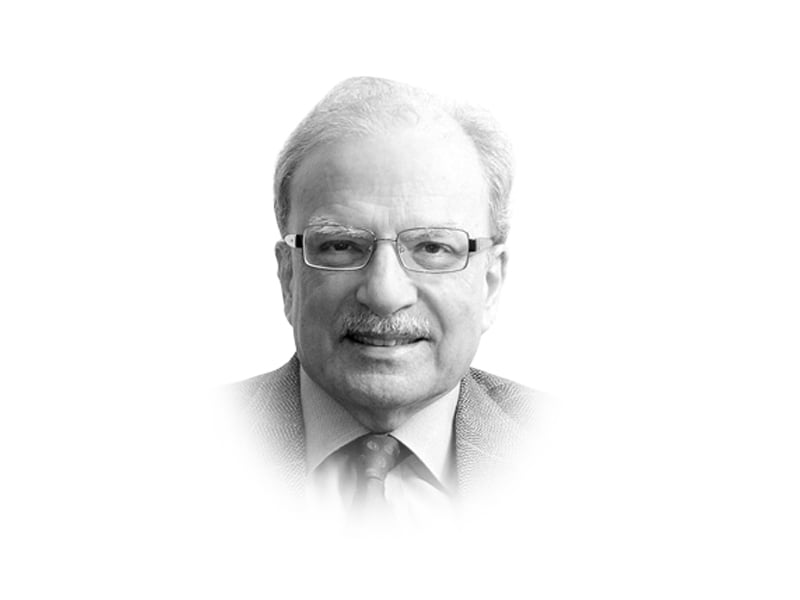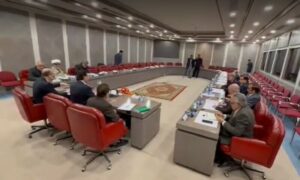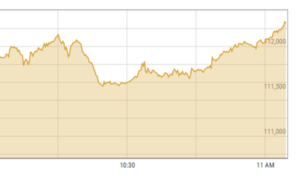For several years while the conflict in Syria was largely frozen, various opposition forces were quietly preparing to more effectively challenge the Assad regime. One of those was Hayat Tahrir al-Sham or the Organisation for the Liberation of the Levant. The group was generally identified by its acronym, HTS. It made the province of Idlib its base from where it launched a military campaign that advanced quickly, taking the major cites if Aleppo, Homs and Hama and eventually reaching Damascus. On December 7, President Bashar al-Assad flew out of Damascus with his family. The Russians granted the former president asylum for a limitless period.
Does the collapse of the Assad regime mean a big blow to Iran and Russia? Syria had helped the neighbouring Iran to arm the groups Tehran called the “axis of resistance”. The resistance was directed at the growing power of Israel in the Middle East. What longtime observers of Iran warn against is counting it out just yet. “Clearly Hezbollah has been badly weakened and Iran clearly emerged as the weaker power in its direct confrontation with Israel,” said Ryan Crocker, a former ambassador to Lebanon, Syria, Iraq and Pakistan. “But you know, tactical and operational success doesn’t necessarily translate into strategic victory. I don’t think Iran or Hezbollah see themselves as defeated. And, one thing that Iran has shown is that they have the capacity to play the long game.”
The events in Syria received a lot of attention in the American press. Liz Sly, a columnist for The Washington Post, wrote: “Assad’s indomitable regime turned out to be a hollow shell, crumbling in only 11 days in the face of lightly armed rebels. By the rime the end came, Assad was isolated and alone, abandoned by his main international allies, Russia and Iran, by an army that was no longer willing to fight for him, and by his minority Alawite constituents many of whom chose to defect and move in with other opposition groups.”
The American leadership was also pleased with what it saw happening in Syria. “At long last the Assad regime has fallen,” President Joe Biden said on December 8. “For the United States, the ouster of a despot backed by Moscow and Tehran is a huge strategic move of the needle in the right direction.” The United States has been seeking Assad’s replacement, through overt and covert means since 2011. Still as Biden rightly cautioned, it brings “a moment of risk and uncertainty” for the region. There were several other informed analysts who commented on developments in Syria. “Syria is the barometer of how power dynamics in the region are changing,” said Mona Yacoubian, head of the Middle East and North Africa Center at the United States Center of Peace in Washington. “It is in for a period of chaos in a region that is already on fire.”
David Ignatius, a longtime observer of developments in the Middle East, contributed an article to the opinion pages of The Washington Post under the title ‘Assad has fallen. What will emerge?’ While he didn’t comment on how Russia would be affected by the fall of Assad, that was the theme of some other analyses in the American newspapers including the one by Adam Taylor and Julia Ledur who wrote a story for The Washington Post under the title ‘Future of Russia’s large military footprint uncertain after the fall of Assad’. They wrote about the likely future of Russian military sites including a naval base on the Mediterranean Sea and an airfield from which Moscow looked at the rest of the Middle East. “The Islamist group Hayat Tahrir al-Sham has criticized the regime’s foreign supporters. Russia backed Assads in Syria’s 13-year-old civil war, hitting rebels with airstrikes from 2015 on and prolonging his reign,” they wrote. Russia was doing “everything that is necessary and everything that is possible” to contact those in power in Syria to ensure the security of its military bases, Kremlin spokesman Dmitry Peskova said on December 8. The most significant international impact of the fall of Assad was on Moscow. Moscow’s deep involvement in Ukraine made it difficult for it to spend resources in the Middle East.
While Russia and Iran appear to have lost their influence in Syria and hence in the Middle East, Turkey has come out as a winner. Here I will quote from the recent writings of Ishaan Tharoor, one more well-informed observer of events in the Middle East. “Turkey whose militant proxies have surged though Syria in recent days is emerging as the outside power with the strongest hand in steering the country’s political transition.”
It is clear that Washington has seen that Ankara is one of the main beneficiaries of the fall of authoritarian president Assad in Syria. One December 12, Secretary of State Anthony Blinken met Turkish Foreign Minister Hakan Fidan and Turkish President Recep Tayyip Erdogan in Ankara, the country’s capital. In his talks with the Turkish leaders, the American diplomat focused on the role Ankara could play in crafting a new political order in Damascus. Washington would like to see an inclusive order in which Islamic extremist groups don’t wield the most power.
On the day Blinken was in Ankara, Turkish spy chief Ibrahim Kalin appeared in Damascus, the Syrian capital, for conversations with the rebel leaders. He spent some time praying in the city’s famous 8th century Umayyad mosque. Ten years ago Erdogan, the Turkish president who has brought Islam back to his country, made a scathing attack on the Assad regime and its attacks on Syrian civilians, millions of whom had crossed the border and were now living in Turkey. In his statement he vowed to one day pray in the courtyard of that mosque. That dream may soon come true. “Today, with Assad gone, this balance of power has rapidly shifted in Erdogan’s favor,” wrote Gonul Tor, director of the Turkish program at the Washington-based Middle East Institute.







